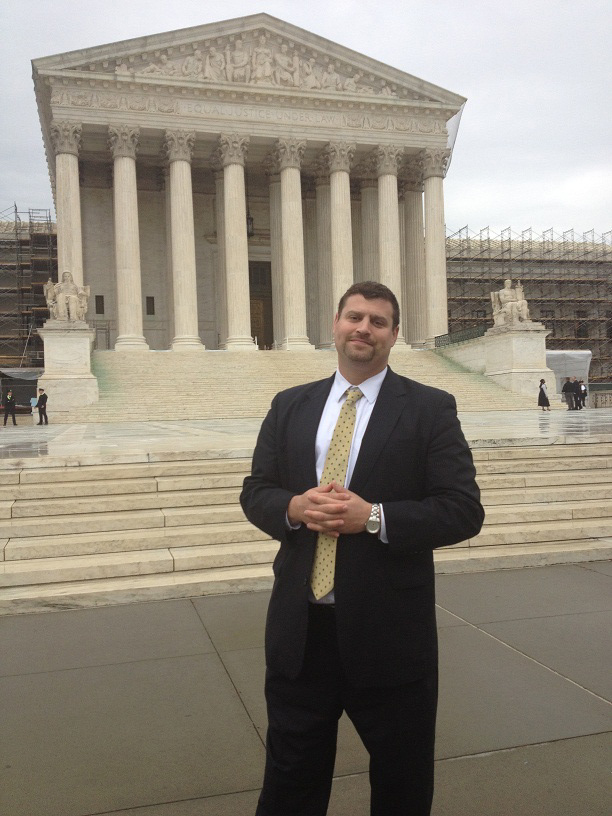
Dan Urman, Director, Doctorate in Law and Policy Program
Northeastern University’s Doctorate in Law and Policy (LPD) program Director Dan Urman was admitted to the Bar of the Supreme Court of the United States during a ceremony in Washington, D.C., on Monday, June 18, 2012.
Urman said, “It is a true honor to become a member of the bar of the nation’s highest court. It certainly reminds one of the privileges and responsibilities we have as members of the legal community. Justice Roberts, when he was nominated to serve as Chief Justice of the United States, mentioned that he got a lump in his throat every time he walked up the marble steps to argue a case. I know what he meant. The building captures the important role the Judiciary plays as a coequal branch of government.”
The bar admission was done before eight members of the U.S. Supreme Court convened for the regular business of the court, including the announcement and reading of four opinions from this term: Match-E-Be-Nash-She-Wish Band of Pottawatomi Indians v. Patchak , which allowed a member of an Indian tribe to sue the federal government; Salazar v. Ramah Navajo Chapter , which held that the federal government must pay contract support costs to an Indian tribe even if the costs exceeded Congressional appropriation; Williams v. Illinois , which held that the admission of expert testimony about DNA test results did not violate the 6th Amendment’s Confrontation Clause; Christopher v. SmithKline Beecham Corp , in which the Court held that pharmaceutical sales representatives qualify as outside salesmen under the most reasonable interpretation of the Department of Labor’s regulations and are not entitled to overtime pay. Following the announcement of these cases, U.S. Supreme Court Chief Justice John Roberts Jr. administered the oath to practice to the assembled lawyers.
Attorneys who are members of the Supreme Court Bar are seated just beyond the bronze railing—”the bar”—and may attend any oral argument. When the Bar section is filled, remaining Bar members sit in the Lawyers’ Lounge and listen to the oral arguments through a loudspeaker.
Urman earned his JD from Harvard Law School and MPhil in Politics and International Relations from the University of Oxford, where he was a Marshall Scholar. He is a member of the Massachusetts Bar, and has practiced law for a large law firm and as an Assistant District Attorney for the Commonwealth of Massachusetts.
Doctorate in Law and Policy
The LPD program is structured so that coursework and the doctoral thesis may be completed in two years. Classes meet one weekend per month in Boston, and the learning continues online throughout the rest of the month. The LPD program’s unique hybrid format encourages collaboration within and between cohorts. Every year, a committee chooses a select group of doctoral students to begin the program. All students follow the same schedule through eight consecutive terms.
Northeastern University’s College of Professional Studies (CPS) is committed to providing career-focused educational programs that are designed to accommodate the complex lives of motivated learners. Offered in a variety of innovative formats, CPS courses are taught by accomplished scholars and practitioners who have real-world experience. The result is an educational experience founded on proven scholarship, strengthened with practical application, and sustained by academic excellence.
Northeastern University is a global university with a tradition of partnership and engagement that creates an innovative, distinctive approach to education and research. Northeastern integrates classroom studies with experiential learning opportunities in 70 countries, and pursues use-inspired research with a focus on global challenges in health, security, and sustainability.